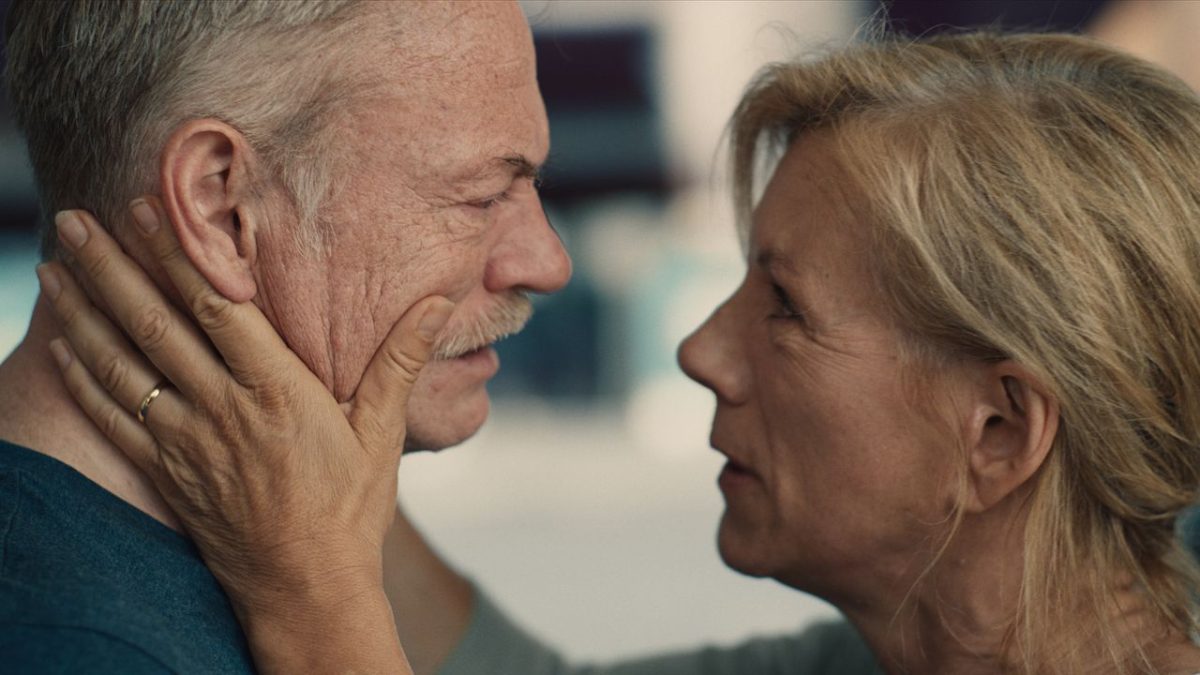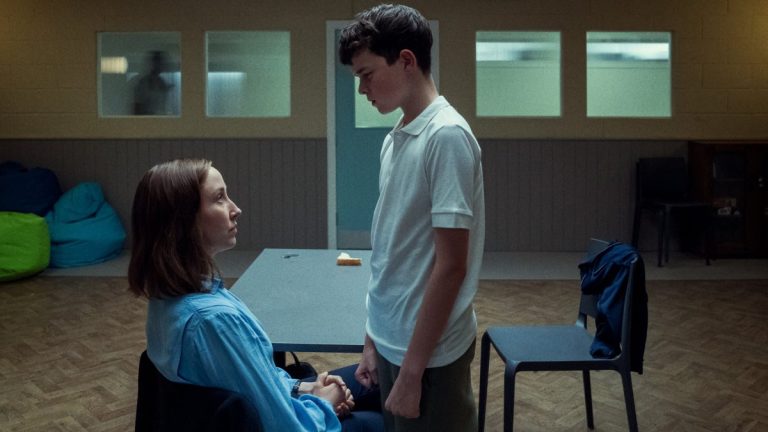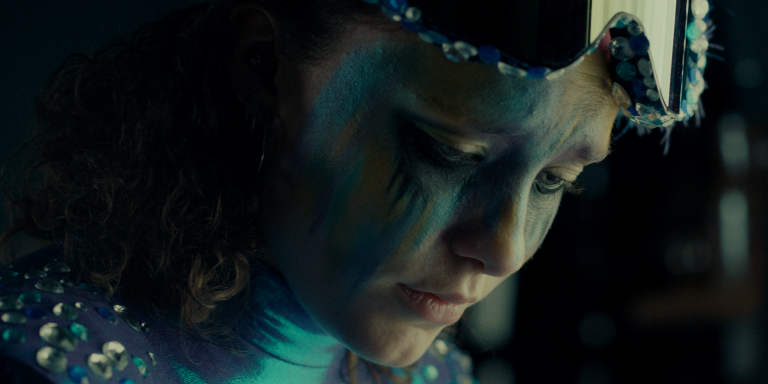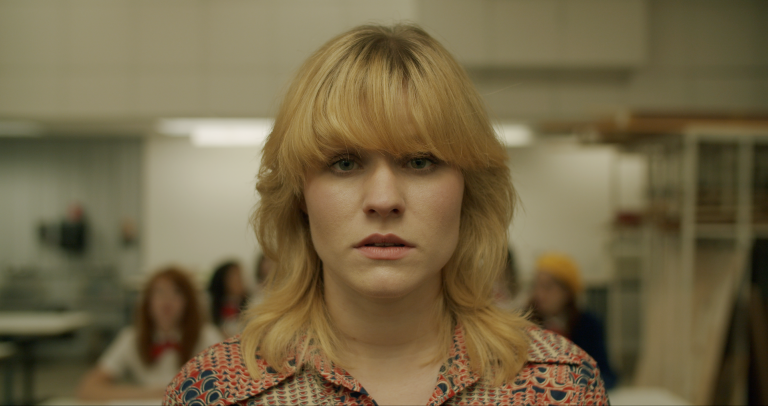Grief isn’t easy to deal with, yet many creative projects from the past few years have explored it in some shape or form. There has been an influx of such stories, more so in horror, where the evil is either a manifestation of this emotion or holds a mirror to its debilitating impact. That might be reflective of the present world, filled with a deep sense of loss or hopelessness.
Otherwise, it may just be a theme considered the most resonating, thus most sellable, by people who back these projects. Regardless of the actual reason, the saturated landscape of grief-driven stories makes it more challenging for any of them to stand out. The same can dampen the effect of projects worthy of our time and attention.
Virginia Gilbert’s “Reawakening” presents one such narrative of a married couple grieving the loss of their child. The film is the farthest thing from a cloying attempt at pulling at your heartstrings. Nevertheless, it suffers from the issues of the aforementioned saturation. What unfolds is not a couple trying to process difficult emotions through impassioned monologues, but through quiet moments, which reveal their endless emotional struggle.
The film follows Mary (Juliet Stevenson) and John (Jared Harris) as they go through the motions of life, silently fighting an internal war with themselves. The couple lost their daughter, Clare, over a decade ago. The authorities find nothing substantial about her whereabouts. So, they were never relieved of the weight of her painful absence. They held on to her memories while putting brave faces on to function in the world.
Read: A Trilogy of Grief: Cinema as Catharsis
Gilbert’s script does not treat this story as an investigative thriller, focusing on the procedural beats in a detective’s journey. In fact, it barely revolves around a traditional truth-seeker, whether a P.I. or a government employee. She does present John in a similar role, desperate to find the truth of Clare’s disappearance, no matter how long it takes.
Still, the script doesn’t use his truth-seeking journey to dump the factual details of what did or did not happen to Clare. Instead, it helps offer an emotional portrait of both parents and to reflect on how we inspect truth and process grief. Hence, John’s solitary search for Clare reveals his desperation even in the face of hopelessness.

Gilbert holds on to a certain sense of ambiguity about John or Mary’s intentions behind their interest or reluctance to find Clare. It leaves the door open for ruminations about their character beyond their appearances, leading us to investigate whether their search is motivated by loss or regret. Gilbert lends her gentle directorial hand to this film, avoiding theatricality at moments ripe for it.
That approach helps because structurally, the film resembles almost a stage play as it focuses on detailing their psyche. Gilbert shows the characters silently observing others or being guarded in each other’s presence, while letting the camera observe them a little longer than usual. It leaves us with nuances of their emotional arc far more convincingly than any words could have.
The film can almost be divided into two parts, with one being about the pursuit of truth in Claire’s absence, followed by its pursuit despite her presence. Her sudden reappearance leaves Mary and John wondering whether they should make peace with what they have or look for what they once lost.
Gilbert fleshed out enough dramatic details through the friction between their frustrations, where the point isn’t simply to vilify someone for their emotional stress or rationalize it, but to present it as a reflection of their emotional truth. The film’s overall lack of theatricality and didactism leaves us with a subdued drama about these characters trying to find a common ground.
Also Read: Of Love, Grief and Rediscovery: A Love Letter to Clementine
Besides the direction, these quieter and lingering moments work because of the trio who are playing these parts. Stevenson and Harris capture the intensity of Mary and John’s pain at Clare’s absence, but they also find the nuances in their reaction to her return. At the time of her disappearance, Clare was barely a teenager and thus had her share of qualms about her parents. Yet, it does not turn “Reawakening” into a potboiler. Gilbert uses their complicated reaction, straddling between ambivalence and comfort, to reveal their yearning.
Erin Doherty embodies the reservedness of the 24-year-old returned Clare through her body language and muted gestures, letting us in on her mysterious presence one step at a time. Their performances bring out the emotional core of Gilbert’s drama about their afflictions, where their desire for comfort and normalcy reveals its attainability, whether through compromise or compassion. Yet, what we see is a familiar story with little discernible distinction from dramas exploring themes of loss and grief. That’s why “Reawakening” is a beautifully performed and personal film, albeit not the most compelling or unconventional in a string of such stories.



![Dogman [2018]: ‘BFI-LFF’ Review – A Story of Love and Tragedy](https://79468c92.delivery.rocketcdn.me/wp-content/uploads/2018/10/dogman_02-768x384.jpg)




![Bucolic [2021] ‘Locarno’ Review – A Portrait of Country Life minus the Idealized Perspective](https://79468c92.delivery.rocketcdn.me/wp-content/uploads/2021/08/Bucolic-2021-768x512.jpg)